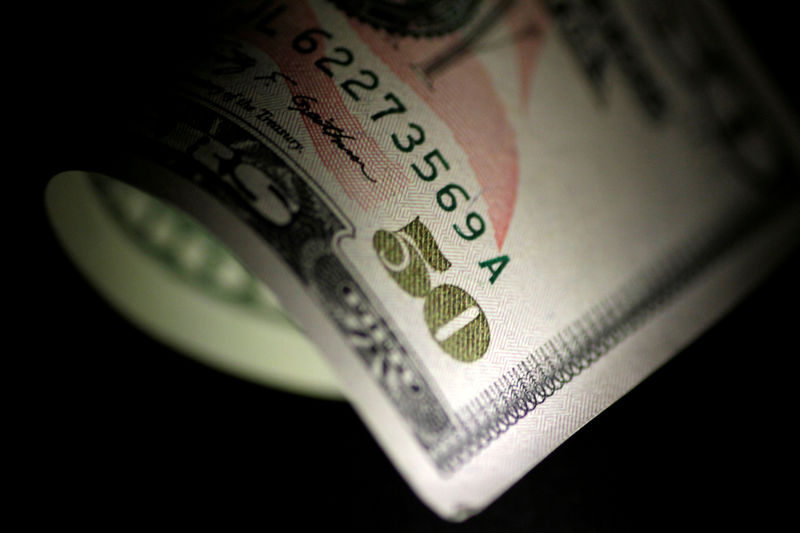 © Reuters. FILE PHOTO: Illustration photo of a U.S. Dollar note
© Reuters. FILE PHOTO: Illustration photo of a U.S. Dollar noteBy Masayuki Kitano
SINGAPORE (Reuters) – The dollar rose broadly on Friday, bolstered by increased optimism about the prospects for U.S. tax reforms, while the New Zealand dollar hit five-month lows, hampered by uncertainty over economic policies under a new government.
U.S. President Donald Trump’s drive to overhaul the U.S. tax code cleared a critical hurdle late Thursday when the Senate approved a budget blueprint for the 2018 fiscal year that will pave the way for Republicans to pursue a tax-cut package without Democratic support.
The dollar rose 0.5 percent on the day to 113.14 yen
“There’s still a lot of uncertainty around the timing and the exact kind of reforms that we will see, but it has given a bit of momentum behind that,” said Peter Dragicevich, G10 FX strategist for Nomura in Singapore, referring to the approval of the budget blueprint by the U.S. Senate.
The dollar is likely to be supported against the yen in the near-term, Dragicevich said, helped by a widening in U.S.-Japan yield differentials and also since Japan’s general election on Sunday seems unlikely to lead to any surprises for the market.
Recent media forecasts have suggested that Japanese Prime Minister Shinzo Abe’s ruling coalition is on track to roughly match the two-thirds “super majority” it held in parliament’s lower house before the snap election was called.
In a sign of the dollar’s broad gains, the euro fell 0.3 percent to $1.1818
The New Zealand dollar sank to a five-month low on concerns the new Labour coalition will take a harder stance on immigration and foreign investment than the outgoing center right government.
The New Zealand dollar fell to as low as $0.6971 at one point, its lowest level since May 22. It was last down 0.6 percent at $0.6989
New Zealand Prime Minister-elect Jacinda Ardern said she would spend Friday ironing out issues and ministerial posts with coalition partner New Zealand First, one day after becoming the Pacific nation’s youngest leader in more than 150 years.
Some analysts are focusing on potential changes to New Zealand’s monetary policy framework under the new government.
The Labour Party has said it wants to add employment to the central bank’s mandate, which would mark a big change for the Reserve Bank of New Zealand.
While the Labour party and New Zealand First Party have floated some different ideas regarding monetary policy, the overall direction seems to be a possible preference for a weaker New Zealand dollar, said Teppei Ino, analyst for Bank of Tokyo-Mitsubishi UFJ in Singapore.
“The common thread seems to be a preference for New Zealand dollar weakness,” Ino said, adding that monetary policy of New Zealand’s central bank may turn more dovish than before.
Fusion Media or anyone involved with Fusion Media will not accept any liability for loss or damage as a result of reliance on the information including data, quotes, charts and buy/sell signals contained within this website. Please be fully informed regarding the risks and costs associated with trading the financial markets, it is one of the riskiest investment forms possible.
Source: Investing.com



























